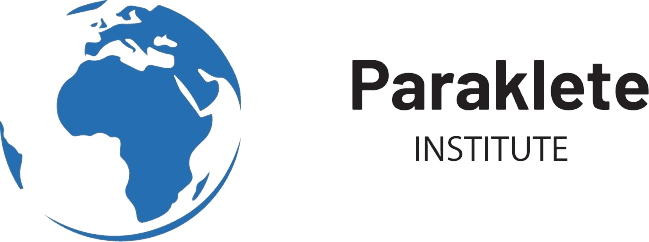Professional Scrum™ with User Experience Certification

Student Ratings & Reviews

-
LevelIntermediate
-
Last UpdatedFebruary 28, 2024
Professional Scrum™ with User Experience Certification

Student Ratings & Reviews

-
LevelIntermediate
-
Last UpdatedFebruary 28, 2024
Professional Scrum™ with User Experience Certification
Prove Your Scrum with User Experience Knowledge
The Professional Scrum with User Experience™ (PSU I) certification validates your knowledge of how Scrum Teams can integrate UX with Scrum to enhance value creation and delivery. Obtaining PSU I proves that you have a fundamental level of understanding about how to integrate modern UX practices into Scrum and to work effectively within Scrum Teams.
Add to
Wishlist
Course Overview
In this two day class* students will leverage an ongoing case study as a way of applying techniques learned throughout the class and preparing to take what they learn back to their workplace. This course is designed for Product Owners and Scrum Masters to enable them to better incorporate design, research and learning into their Scrum process.
Lean UX techniques focus the team toward customer-centric design and discovery. Scrum focuses the team toward rapid delivery and customer feedback. By bringing together Lean UX and Scrum, teams learn how to drive the design together with delivery in short, iterative cycles to assess what works best for the business and the user.
Leveraging Lean UX techniques, the course takes core design and research activities, illustrating how they come together with development and delivery. Attendees explore how these activities fit into a dual-track agile process (Design and Development) where cross-functional teams can work together to explore, experiment and deliver value-based outcomes.
PSU I includes questions from the following Focus Areas as defined in the Professional Scrum Competencies:
- Understanding and Applying the Scrum Framework:
- Empiricism, Scrum Values, Scrum Team, Events, Artifacts, Done
- Developing People and Teams:
- Self-Managing (Cross-Functional) Teams – Including UX
- Managing Products with Agility:
- Product Value, Product Backlog Management, Stakeholders & Customers, Work Management with UX
- Complementary Practices:
- Lean UX Practices & Techniques
Course Learning Objectives
- Gain a common understanding of what is meant by Professional Scrum
- Dispel many myths about User Experience and its relationship to Agile and Scrum
- Experience how the UX mindset and the Scrum framework compliment, align, and integrate
- Learn the advantages of thinking of work as problems to solve, and the Business Problem Statement’s role in this
- Understand how the Scrum Team can connect more closely with end users and customers
- Understand how “easily” and “quickly” we can do product development and include UX
- Learn the advantages of thinking of work as problems to solve, and how Business Problem Statements can frame the discussion
- Learn common patterns for employing UX practices within a Sprint and within a cross-functional team that includes UX Professionals
- Learn how to plan and balance both discovery and delivery work
- Leave with some UX techniques that can be accomplished within the Scrum Team
- Understand how anyone on the Scrum Team can support UX practices in support of the product
- Focus on outcomes and impacts over outputs
- Embrace the need to release and use measurements to validate outcomes
- Realize the importance of incorporating UX work as part of the Product Backlog
- Learn the value of testing hypotheses with experiments
- Understand how to design experiments to be as low-cost, low-risk as possible, and how to make them “ride the Truth Curve” as you increase investment
Who Should Attend this class?
- Scrum Masters and Product Owners who will learn how to integrate the UX specialty with what they already know about the power of self-organizing cross-functional teams. This will enable them to help Developers to learn about the customer, plan learning/discovery/design work, and still deliver a “Done” increment each Sprint.
In addition, Scrum Masters will learn how to incorporate product discovery techniques into Sprints and how to balance the product discovery work with the product delivery work while Product Owners will learn product discovery techniques that User Experience Designers use to better understand the needs of the user.
- UX Professionals struggling to integrate on a Scrum Team will learn how to work more effectively inside Scrum, managing work in Sprints and visualizing it in the Product Backlog.
- People who have learned about Lean UX and want to learn how to integrate those concepts into Professional Scrum working together in a unified Scrum Team.
Certification Details
- $200 USD per attempt
- Passing score: 85%
- Time limit: 60 minutes
- Number of Questions: 60
- Format: Multiple Choice, Multiple Answer and True/False
- Free Credly digital credential included
- Practice assessments: Scrum Open and Product Owner Open
- Passwords have no expiration date, but are valid for one attempt only
- Lifetime certification – no annual renewal fee required
Introduction to PgMP credential exam
- PgMP credential exam overview
- Overview of application process
- Tips for Effective and Efficient learning
- Understanding the SPMv4 -standard and ECO (Examination Content Outline)
Introduction to Program Management
- Organization Vision and Mission
- Business value
- Organization Strategic planning
- Portfolios, Programs, Projects and Operations
- Decision making –Portfolio/Program/Project/Operations
- Program and Project distinctions
- Program Management
- Program Manager skills and competencies
- Program Management Office
- Introduction to Exam Content Outline (ECO)
- Practice questions
Program Management Performance Domains And Program Life Cycle
- Program Life Cycle
- Program Life Cycle gate pass criteria.
- Program management performance domains
- Program Management –Change cycle
- Practice questions
Program Strategic Alignment
- Introduction to Program strategic alignment
- Organizational strategy and program alignment
- Program selection by portfolio
- Strategic Plan
- Program Sponsor
- Program Definition phase dataflow and strategic alignment –dataflow
- Program Business case
- Program Charter
- Program Roadmap
- Environmental Factors Impact assessments
- Risk strategy alignment
- Strategic alignment -ECO tasks analysis and mapping
- Practice questions
Program Benefit management
- Outputs, Capability, Outcome, Benefit and dis-benefits
- Types of benefits
- Benefit delivery models
- Balanced scorecard
- Architecting the program
- Benefit management life cycle and program life cycle
- Benefit Identification phase
- Identifying Data, Metrics, Indicators, KPA, KPIs
- Benefit analysis and planning phase
- Benefit realization plan
- Benefit register
- Benefit delivery phase
- Benefits transition phase
- Benefit Sustenance phase
- Practice questions
Program Governance
- What is Program governance
- Differencebetween Governance and Management
- Program Governance -Responsibilities
- Typical program organisation set-up
- Program Governance -plan
- Change management
- Issue escalation
- Providing management oversight -Phase gate, health check and other decision point reviews
- Component Initiation andtransition
- Governance of components
- Practice questions
- ECO mapping to the Standard
Program Stakeholder engagement
- Program Stakeholder engagement
- Wants, needs and expectations
- Stakeholder identification
- Stakeholder analysis
- Stakeholder Register
- Stakeholder engagement strategies
- Stakeholder engagement planning
- Stakeholder engagement
- Resistancetriangle and pyramid
- Practice questions
Program Integration
- Review of Program Life cycle
- Program selection
- Program definition phase integration activities
- Program delivery phase integration activities
- Program closure phase integration activities
Program Management Supportive processes
- Program Communication management
- Program finance management
- Program resource management
- Program procurement management
- Program quality management
- Program scope management
- Program schedule management
- Program risk management
- Program information management
- Program change management
Exam Strategy / Analysis Workshop
- PgMP Exam application writing –Guidelines and tips
- Understanding ECO for exam
- Critical thinking skills and Exam question analysis
- Exam –Help points and Tips
- Exam taking –Strategy (per individual)
- Support throughout the engagement
- Question & Answer sessions (online, in groups)
- Mail / Phone Support
The PgMP Certification Requirement
- The PgMP has two assessments: a written panel review and a multiple choice exam.
- We have a wide range of study resources to set you up for success.
- Upon successfully completing the Panel Review Assessment, you'll be ready to schedule your exam.
Why is the PgMP Exam Different?
After your application is approved and payment is received, a panel of volunteer PgMP-certified program managers will assess your professional experience based on your responses to the Program Management Experience Summaries on the PgMP application.
Certification Details and Criteria
Eligibility for the PgMP Exam
Do you have real-world program management experience that’s led to success? Great—you’ve finished the hardest part. Before you apply, make sure you meet one of the following sets of PgMP Certification requirements:
PgMP certification is an essential professional requirement for senior project manager roles across all industries. The eligibility requirements for PgMP certification are:
PgMP certification exam fees for PMI members and non-members
Delivery Approaches
- Self-paced e-learning Path
- Online Bootcamp Virtual Instructor-led Package: 1month Accelerated (3weekends, Saturday & Sunday, 4pm -8:30pm)
- Online Virtual Instructor-led Comprehensive Mentorship Path: 3months (1 class/wk, 3 hours each)
- Onsite (In-Person; face-to-face) Bootcamp 1month Accelerated (3weekends, Saturday & Sunday, 4pm -8:30pm)
- Onsite (3-month) comprehensive Master Class Mentorship Path: 1 class session of 3hrs/week
- Onsite 4 day prep course


Saturday of Every Weekend New Class Begin
- 15-Day Speed Mentoring Challenge. Register Now
- 30-Day Speed Mentoring Challenge. Register Now. Register Now
- 45-Day Speed Mentoring Challenge. Register Now
- 90-Day Comprehensive Mentoring Challenge. Register Now
- MasterClasses – Online
Online Instructor led
Learning Option
Lorem ipsum dolor sit amet, consectetur adipiscing elit. Ut elit tellus, luctus nec ullamcorper mattis, pulvinar dapibus leo.
Eligibility
PMP certification is an essential professional requirement for senior project manager roles W across all industries. The eligibility requirements for PMP certification are:
Education
Nongraduates
Project Management Experience
5 years/7500 hours
Project Management Education
35 hours
Graduates
Project Management Experience
3 years/4500 hours
Project Management Education
35 hours
Course Fee
-
Online:
$364.00 -
Onsite:
$995.00
Related Courses
- PMP: Project Management Professional
- CAPM: Certified Associate in Project Management
- PMI-PgMP: Program Management Professional
- PMI-PfMP: Portfolio Management Professional
- PMI-PBA: Professional in Business Analysis
- PMI-RMP: Risk Management Professional
- PMI-ACP: Agile Certified Practitioner
- PMI-SP: Scheduling Professional
- PMI-DA: Disciplined Agile
- PMI-CP: Construction Professional
- PMI-OT: Organizational Transformation.
